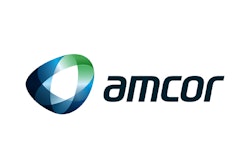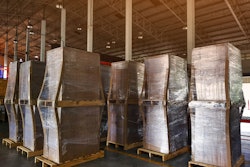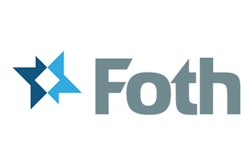Quick hits:
- Brand owners in every Consumer Packaged Goods category are implementing new technologies to make their packaging more sustainable and, in particular, to reduce their use of virgin plastic. The confectionery and ice cream category is one, with companies such as Nestlé, Unilever, and Mars Wrigley testing the waters with a range of sustainable packaging strategies.
- Nestlé is employing a number of new technologies for its candy and ice cream packaging to reduce its use of virgin plastics. Among them are the first flexible candy wrap to use 30% recycled content plastic created through advanced recycling, a striking double-walled reusable can for ice cream, and a switch from paper to plastic across its entire Smarties candy portfolio.
- Unilever has found success with advanced recycling, working with Sabic to create the first ice cream container made from certified circular polypropylene. The new package, for Unilever’s Magnum brand, has the same functionality as virgin plastic.
- Mars Wrigley has partnered with bioplastics company Danimer Scientific to develop compostable materials for both flexible and rigid packaging applications. The candy company’s first commercial offering will be for its Skittles brand.
Related to this episode:
- Consumers are seeking healthier choices in treats, such as reduced sugar or protein-fortified formulations. Learn more in this market snapshot of the candy and confectionery industry.
- Find out how a number of brands, in confectionery and other industries, are redesigning their packaging for reusability through the Loop circular shopping platform.
- Discover how bio-based materials are being used for packaging from Cucina Fresca and Lamb Weston in this Take5 video.
- PMMI U offers educational employee development resources for members of the entire supply chain. Participate and learn more about its industry trainings, certifications, leadership development, career toolkit, and more.
 | Read the transcript below: |
Hello, this is Anne Marie Mohan, senior editor of Packaging World Magazine, with Take Five.
Almost daily, I receive press releases on new packaging that's been engineered to reduce or eliminate the use of virgin plastic. This is happening in every industry, including food and beverage, personal care, household cleaning products, and others. To highlight some of the new strategies that brands are taking, I'd like to share some recent examples that come from confectionary and ice cream in particular.
In Australia, Nestlé has created a prototype of a flexible film overwrap with 30% recycled plastic content for its KitKat chocolate bar. Eight companies were involved in developing the material, handling all stages from curbside and in-store collection of flexible packaging all the way to film converting, which is done by Amcor. The food grade recycled content polypropylene is created through an advanced recycling technology called cat-HTR from Australian company Licella. Cat-HTR converts the flexible packaging waste into a refined synthetic oil, which is then used to produce polypropylene. There's no word from Nestlé on when the packaging might be commercialized.
Also, using advance recycling for packaging is Unilever. In August 2020, Unilever's Magnum brand became the first in the ice cream category to use recycled plastic in its packaging, rolling out more than 7 million ice cream tubs made with certified circular polypropylene from SABIC's TruCircle initiative. TruCircle involves taking mixed plastic waste and recycling it through pyrolysis into an oil that can then be used as a feedstock to produce a range of plastics with the same functionality and characteristics as virgin plastic. Iconic to the Magnum brand is the fact that consumers can squeeze the tub and crack the chocolate shell that covers the ice cream inside. The new plastic delivered on this as well.
And speaking of ice cream, Nestlé has a great story to tell with the package it developed for its Haagen-Dazs ice cream brand for Loop. Loop is an online shopping platform where consumers can purchase a range of products in reusable packaging that is returned for cleaning and refilling. The Haagen-Dazs package for Loop is a stainless steel double-walled container that keeps the ice cream fresh and cold from the time it's filled until it reaches the consumer's home. When Loop was first announced, this was one of the packages that got a lot of attention because it demonstrated how brands can add greater functionality and aesthetics to their packaging when they don't have the cost constraints of single use packaging.
In other news from Nestlé, in Europe the company has commercialized paper packaging for 419 skews of its popular Smarties candy coated chocolates. Nestlé says the breakthrough development is a world first for confectionary. The project took 200 people 18 months to develop. Not only did the new paper wrap have to provide the same barrier and durability as plastic, but it also had to be able to run at full production speeds of 300 packs per minute on Nestlé's existing equipment. Nestlé also had to redesign many of its iconic packages for Smarties because they couldn't be reproduced with paper. Over the past year, Nestlé has moved the majority of its Smarties confectionary range to paper.
Mars Wrigley is taking a very different approach with compostable packaging. The company just announced a two-year partnership with bio-based plastics maker Danimer Scientific to develop compostable materials for both flexible and rigid packaging applications. Danimer's Nodax PHA bioplastic is produced through the natural fermentation processes using plant oils, and can be composted both industrially and at home. PHA is also the only bio-based plastic certified to biodegrade in marina environments. Mars Wrigley's first commercial offering in the new packaging will be at Skittles brand, with launch tentatively scheduled for late 2021 or early 2022.
As you can see, even within just these industries, confectionary and ice cream, brand owners are delving deep into new technologies to make their packaging more sustainable. As many brand owners have shared with me, while it's a very challenging time to be in packaging. It's also never been a more exciting time. Thank you for joining me for this episode of Take Five. Be sure to visit our website to learn more about new sustainable packaging developments.


























